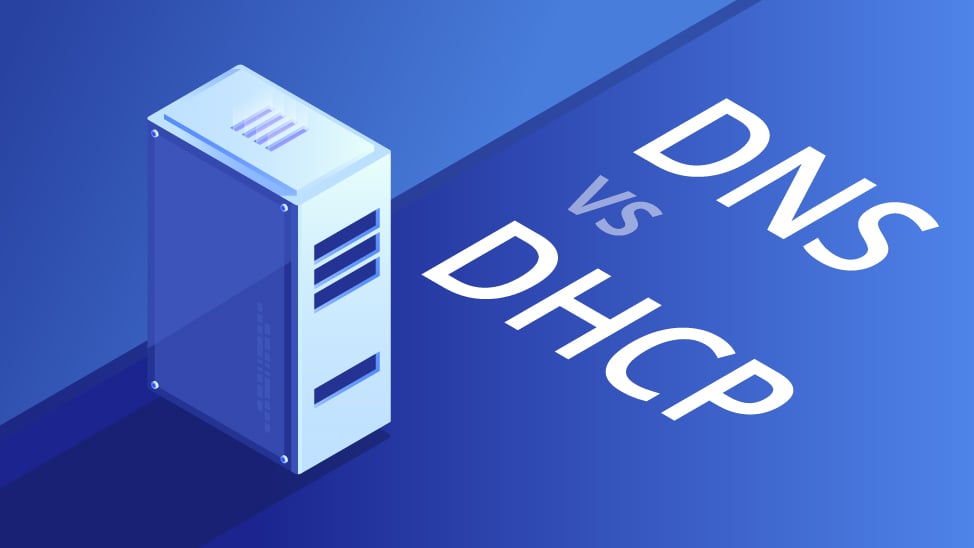DNS vs DHCP – What’s the Difference?
In the world of networking and Internet technology, terms like Domain Name System (DNS) and Dynamic Host Configuration Protocol (DHCP) are often thrown around. While both play crucial roles in the smooth operation of networks, they serve distinct purposes; hence, learning the difference between DNS vs DHCP is vital in this age.
What is DNS – Domain Name System?
Simply put, Domain Name System (DNS) is the phone book of the internet. It’s the system that converts website domain names (hostnames) into numerical values (IP address) so they can be found and loaded into your web browser.
This happens because machines don’t understand site names like we do. A website written as greencloudvps.com is a way for us, as humans, to remember web pages while the servers they’re stored on refer to them as numbers.
It works in the background, and it’s not something the average internet user will need to worry about much. But without it, your browser wouldn’t know where to point your web page request, and finding the information you need would be a much more arduous process.
What is Dynamic Host Configuration Protocol (DHCP)?
Dynamic Host Configuration Protocol (DHCP) is a network management protocol used to automate the process of configuring devices on IP networks, thus allowing them to use network services such as DNS, NTP, and any communication protocol based on UDP or TCP. A DHCP server dynamically assigns an IP address and other network configuration parameters to each device on a network so it can communicate with other IP networks. DHCP is an enhancement of an older protocol called BOOTP. DHCP is an important part of the DDI solution (DNS–DHCP–IPAM).

DHCP vs DNS: What are their differences?
Functionality
Functionality in networking refers to the specific tasks and capabilities that a network component or protocol performs. Here are some DNS and DHCP differences based on their respective functionalities:
DNS primarily deals with the resolution of domain names to IP addresses. It translates user-friendly domain names into numeric IP addresses, making the process of accessing websites much more easier and services on the Internet. Essentially, it makes Internet resources more accessible by allowing users to use domain names instead of memorizing complex IP addresses.
DHCP focuses on automating the allocation of network resources, primarily IP addresses and related configuration settings. When a device joins a network, DHCP dynamically assigns it an IP address, ensuring that devices can connect and communicate without requiring manual configuration.
Purpose
The purpose of DNS is to translate domain names into IP addresses. When a user enters a domain name into a web browser, DNS translates the domain name into an IP address so that the user’s device can connect to the appropriate web server. Moreover, DNS is vital to the functioning of the Internet. Why? Because it allows users to access websites and other resources using human-readable domain names rather than IP addresses.
Oppositely, DHCP is used to automatically assign IP addresses and other network configuration settings to devices on a network. When a device connects to a network, DHCP assigns an IP address, subnet mask, default gateway, and other configuration options to the device. Also, DHCP simplifies network management by eliminating the need for administrators to manually configure each device on the network. Additionally, DHCP also ensures that devices are assigned unique IP addresses that are required for the network to function properly.
DHCP vs DNS: Operation
Operation in networking describes how a component or protocol functions in practice. The differences between the operation of DHCP and DNS are as follows:
DNS operates at the application layer of the OSI model, translating domain names into IP addresses when requested by applications or devices. It does not assign IP addresses but simply resolves domain names to IP addresses.
DHCP operates at the network layer of the OSI model, providing IP address allocation and configuration services to devices during the network initialization process. It actively assigns IP addresses and manages their usage.
Caching Differences
On one side, DNS uses caching to speed up domain name resolution. When a DNS client resolves a domain name, the result is cached. If the same domain name is requested again, the client uses the cached information to quickly resolve the domain name without sending another query to the DNS server. This helps reduce the amount of traffic on your network and speed up domain name resolution.
Importantly, DHCP, caching is generally not used. Used to assign IP addresses and other network configuration information to devices on a network. When the device requests an IP address from the DHCP server, the DHCP server assigns the IP address and other network configuration information to the device. This information is usually not cached and must be obtained from the DHCP server whenever needed.
Statefulness
Statefulness in networking indicates whether a protocol or component maintains information over time. The differences between the statefulness of DHCP and DNS are as follows:
DNS is stateless, meaning it doesn’t maintain any information about previously resolved domain names. Each DNS query is independent, and the server responds based on its current knowledge.
DHCP is stateful, as it keeps track of IP address leases and network configurations. This ensures that IP addresses are not allocated to multiple devices simultaneously and that network settings are consistent.
DHCP vs DNS: Resource Type
Resource type in networking refers to the specific types of data or parameters managed by a protocol or component. The differences between recourse type usage of DHCP and DNS are as follows:
DNS primarily deals with domain name records (A records, CNAME records, etc.) and their associated IP addresses. It resolves domain names to IP addresses and vice versa.
DHCP deals with IP address leases, subnet masks, default gateways, DNS server addresses, and other network configuration parameters. It allocates and manages these resources for devices on the network.
Scalability
Scalability in networking reflects the ability of a component or protocol to adapt to different network sizes and demands. The differences between DHCP and DNS are as follows:
DNS servers are typically organized hierarchically, with a small number of root servers at the top and a larger number of distributed servers beneath them. This hierarchical structure allows DNS to scale effectively.
DHCP servers are usually deployed within a local network or subnet. Scalability depends on the network’s size and the number of devices requiring IP addresses. Larger networks may require multiple servers for redundancy and load balancing.

DNS vs DHCP: Which is better in two?
If you are looking for a simple and efficient way to manage IP addresses, DHCP may be the better option. But, if you need more control over your network or want to implement advanced features, DNS may be the better choice. Ultimately, it is essential to consider your specific needs before making a decision.
Conclusion
As you see, the two have a very different purpose but both of them are very useful for us, the people. There is no rivalry between DNS vs DHCP. The internet is a complicated place, but technologies like DNS and DHCP make it easy for us. We hope that after reading this article, you understand it a bit better.